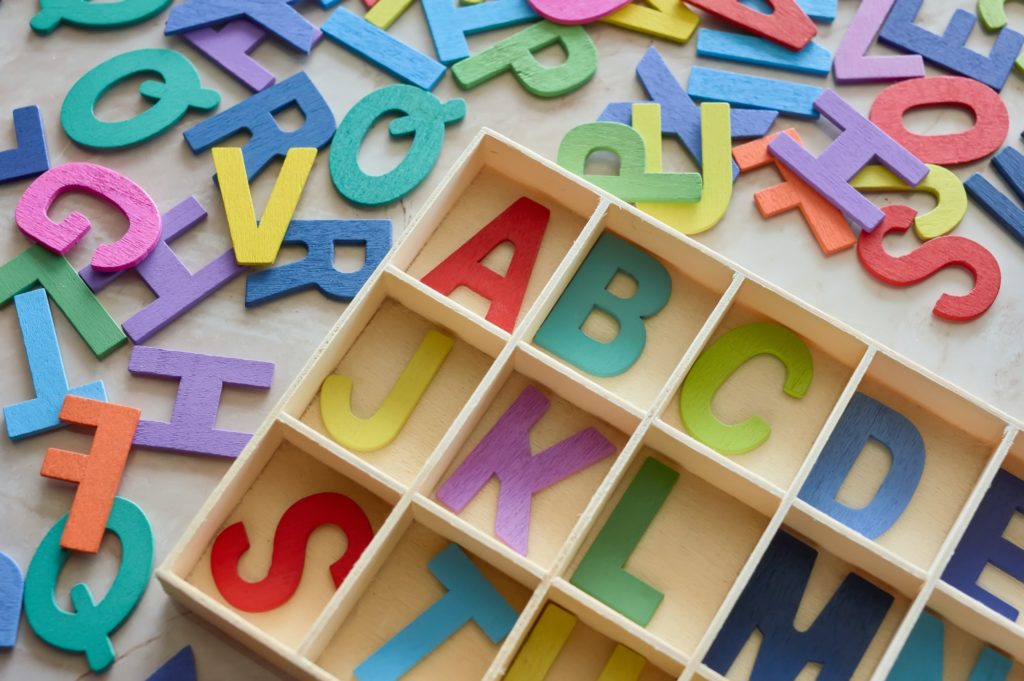Toddler Program
Innocent Minds Toddler Program
Innocent Minds Preschool Academy Toddler Programs provides children aged 2-3 with hands-on learning opportunities that are active, self-paced, and based on real-world experience. Learning goals focus on developing independence, social skills, confidence, and a solid academic base in preparation for future learning.
Learning in the Toddler Community
The Innocent Minds Toddler Program is active, self-paced, and involves learning using all five senses. Children are introduced to the five areas of the Innocent Minds Curriculum, including Practical Life, Sensorial, Mathematics, Language and Culture, and develop competence through repetition and practice.
Between the ages of two and three, toddlers move through sensitive periods for language, order, small objects, toilet training, music, grace and courtesy, and the senses. The design of the toddler classroom, and the educational materials within in, reflect these interests and provide rich opportunities for learning that nurture children’s complete development.
Similarly, the daily routine reflects this age groups need to learn through movement and hands-on experience, while embracing children’s individual needs, interests, and learning style. Once children complete the Toddler Program, they progress to the Innocent Minds Preschool Program, where they master the progression of the Innocent Minds Curriculum, and prepare for their transition to school.
Toddler Learning Goals
- Can identify common objects, body parts, and colours by name
- Recognises numerals and counts by rote
- Speaks in sentences and expresses thoughts and feelings
- Participates in physical activities
- Ability to use the pincer grip when writing and drawing
- Shows self-confidence and interacts well with others
- Distinguishes between sights, smells, tastes and sounds
- Demonstrates problem-solving skills and shows curiosity


Toddler Curriculum
Practical Life
Practical life activities focus on care of self, care of others, and care of the environment. In addition to teaching daily life skills, practical life activities promote independence, social skills, grace and courtesy, concentration, and coordination.
Example materials and activities include:
- Spooning
- Pouring
- Gardening and plant care
- Grating
- Window washing
Sensorial
Sensorial activities are designed to help children develop and refine the senses of sight, touch, taste, smell and sound. These skills assist with classifying, sorting and discriminating between objects to interpret their sensory impressions. These skills are necessary foundations for language and mathematics.
Example materials and activities include:
- Pink tower
- Brown stairs
- Red rods
- Geometric tray
- Thermic tablets
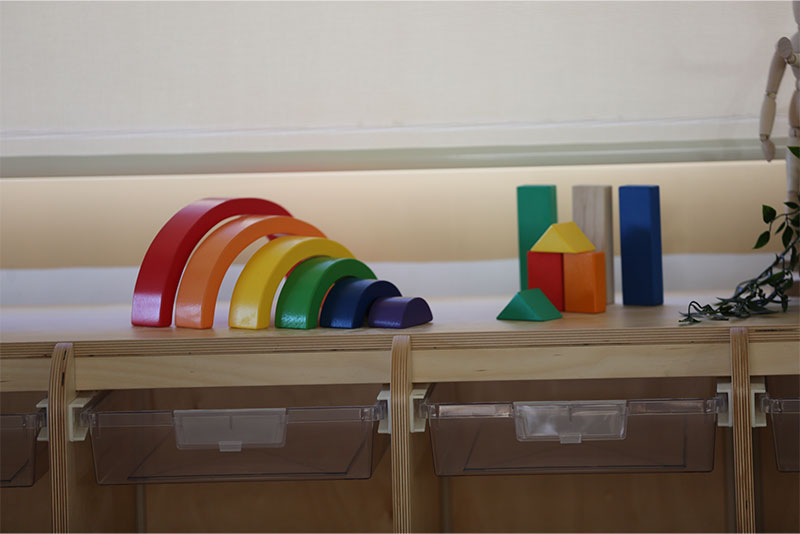
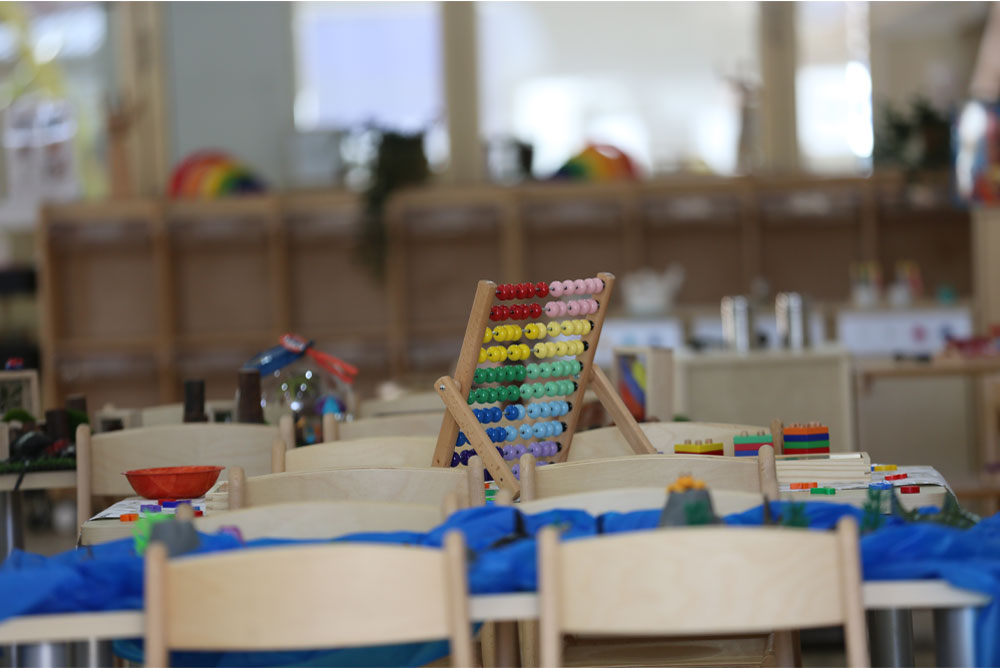
Mathematics
Innocent Minds mathematics materials assist children in developing an understanding of abstract mathematical concepts through hands-on experiences. Through the mathematics materials, students learn to identify and quantify numerals, count and sequence numbers, add and subtract, identify patterns, and learn about number systems.
Example materials and activities include:
- Sandpaper numbers
- Spindle box
- Number rods
- Cards and counters
- Cut-out numerals and counters
Language
Innocent Minds toddler language materials assist children in learning letter recognition, phonics, simple word structures, vowels and consonants, and the early stages of writing and reading.
Example materials and activities include:
- Sandpaper letters
- Three part cards
- Metal insets
- Plain paper cutting strips
- Object picture matching
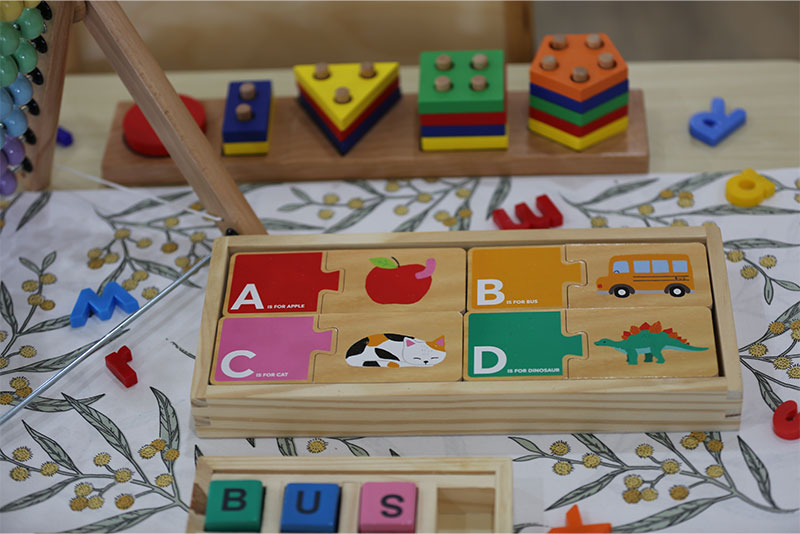
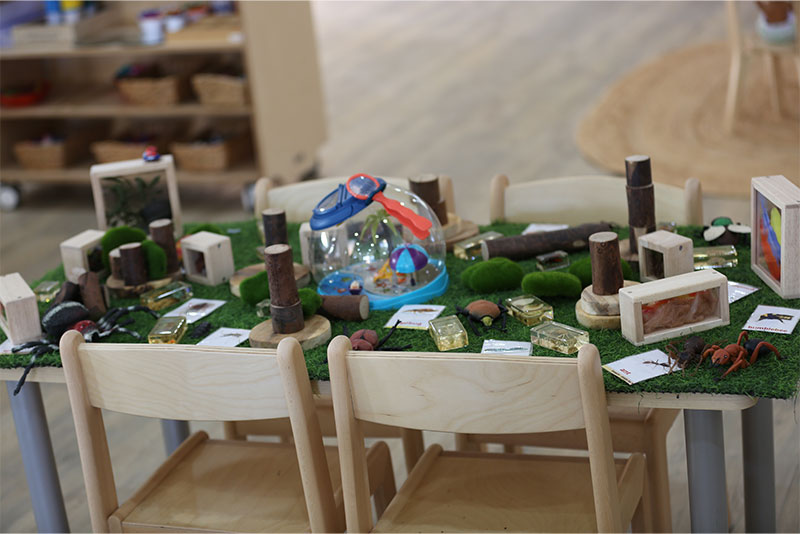
Culture
The Innocent Minds Culture Curriculum covers the study of the arts, geography, science, environment, national culture, music, and history. Through cultural activities children learn about their community and the world. They discover similarities, differences, and develop an understanding, appreciation and respect for diversity and all living things.
Example materials and activities include:
- Land and water globe
- Flag puzzles
- World map puzzle
- Life cycle puzzle
- Botany cabinet
Early Years Learning Framework
In addition the Innocent Minds Curriculum, all Innocent Minds Academy childcare centres also teach the Australian Government’s Early Years Learning Framework (EYLF): Belonging, Being & Becoming. The EYLF incorporates five learning outcomes that work hand-in-hand with the Innocent Minds Curriculum to support children’s learning from birth to age five.
Five Key Outcomes of the EYLF:
- Outcome 1: Children have a strong sense of identity
- Outcome 2: Children are connected with and contribute to their world
- Outcome 3: Children have a strong sense of well-being
- Outcome 4: Children are confident and involved learners
- Outcome 5: Children are effective communicators
